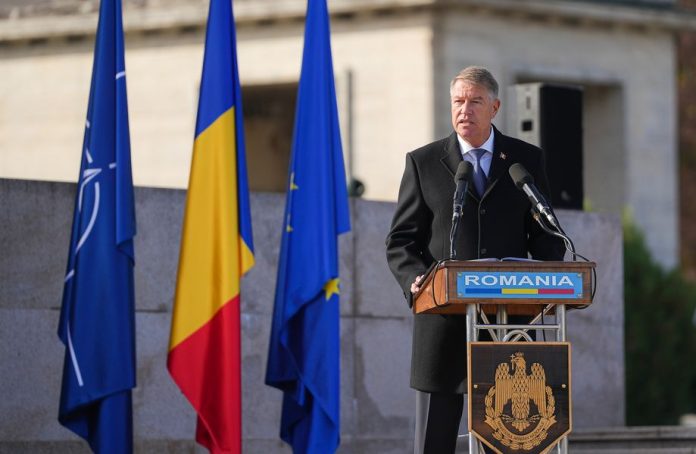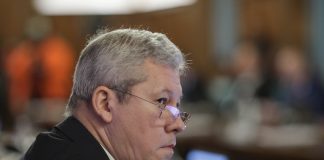President Klaus Iohannis received at the Cotroceni Palace Georgian ambassador Tamar Beruchashvili, Algerian ambassador Abdelmadjid Naamoune, Cyprus ambassador Mario Savva Kountourides, and Portuguese ambassador Paulo Jorge Sousa da Cunha Alves, on the occasion of the presentation of their letters of credence, according to Agerpres.
President Iohannis welcomed the diplomats upon taking over their new mandates, wishing them success and assuring them of the support of the Romanian authorities in their activity, the Presidential Administration informs.
At the meeting with the Georgian ambassador, the head of the state evoked the advanced level of the bilateral relationship, as confirmed by the establishment of the Strategic Partnership between Romania and Georgia on the occasion of the Georgian president’s visit to Bucharest on October 11, 2022, as well as by the signing in Bucharest, on December 17, 2022, in the presence of Georgian Prime Minister Irakli Garibashvili, of the agreement between the governments of the Republic of Azerbaijan, Georgia, Romania and Hungary on the strategic partnership for green energy development and transmission.
The Romanian head of state welcomed the joint steps for the operationalization of the Black Sea – Caspian Sea freight trade corridor, a Romanian initiative which has started taking shape in recent years and which acquires new significance in the current regional context. President Klaus Iohannis also voiced appreciation for the Romanian-Georgian cooperation in the development of regional energy, transport or digital interconnection projects.
„During the talks, hope was expressed that the Romanian-Georgian Strategic Partnership will lead to the development and deepening of cooperation between the two countries regarding the Euro-Atlantic and European agenda, with the president of Romania affirming that our country will remain one of the staunchest supporters of Georgia’s aspirations for European and Euro-Atlantic integration,” the Presidential Administration informs.
At the meeting with the ambassador of the People’s Democratic Republic of Algeria, President Iohannis mentioned the very good diplomatic relations between the two states, as well as the role of Algeria as a traditional partner of Romania on the African continent and in the Arab world. He also expressed the joint interest in deepening bilateral cooperation, mainly in fields such as economy, education, agriculture.
During the discussion with the new Cypriot ambassador, the head of the state expressed interest in expanding the bilateral relationship and commended the dynamic development of trade between Romania and Cyprus, noting at the same time the existing growth potential, which should be further exploited. Also, both sides highlighted the important role played by the Romanian community in Cyprus in the development of relations between the two countries, praising its high degree of integration in the Cypriot society and its positive contribution to the social and economic life of the country. The importance of a close coordination on European and regional files of joint interest, as well as the strengthening of the joint European capacity to adequately respond to the new challenges generated by the Russian invasion of Ukraine were also approached during discussions.
At the meeting with the ambassador of the Portuguese Republic, President Iohannis appreciated the excellent bilateral relations, also reflected in the frequency of the recent high-level contacts.
Also, Klaus Iohannis voiced special appreciation for Portugal’s participation with troops in the NATO multinational force stationed in Romania, for the reinforcement of allied defense on the eastern flank; the sides also explored prospects of continuing and deepening collaboration in the military field and in other files of common interest.
The head of the state also hailed the recent visits to Romania of the Portuguese president and prime minister, which demonstrate the mutual interest in ensuring European security, the development of bilateral cooperation and close coordination within the European Union and NATO. The sides exchanged opinions on the security situation, the continuation of support for Ukraine and the refugees from this country, and support for the Republic of Moldova, including in its EU accession process. Digital infrastructure, energy – renewable energy included – the digitization of administration, tourism and student mobility were highlighted as areas of interest for the intensification of bilateral cooperation.
Agerpres




